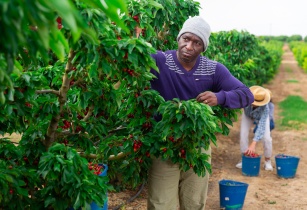The Ministry of Agriculture, Animal Industry and Fisheries (MAAIF) is currently in need of US$4.9bn to combat food security in the country, out of which US$2.9bn will be utilised for boosting production, establishment of silos and food reserves
The report of the Committee on Agriculture, Animal Industry and Fisheries on the sector’s budgetary allocations for the Financial Year 2023/2024 was presented by the Committee chairperson, Janet Okori-Moe on18 April 2023 in a sitting of the House chaired by Deputy Speaker, Thomas Tayebwa.
Okorie Moe said the required funding is aimed at putting in place reliable mechanisms for handling food crises as opposed to emergency responses adopted by the government. “As a committee, we observe with concern that there is no clear food security policy and strategy in the country. Government has adopted adhoc manners of handling hunger related crisis,” Okorie-Moe said.
According to her, US$812.7mn is required to refund government agencies that were tasked to use their budgets to increase food production and animal feeds in response to the recent famine. As a means of increasing food production, the committee recommended that US$1.1bn be provided to effect a cabinet directive to avail funds to large scale farmers across the country already profiled by MAAIF.
Legislators commended the move to increase funding to NAADs whose services they said were commendable. “We must invest massively in post-harvest handling and increasing processing capacities. If you remember, there is a list of our products which were rejected, some due to aflatoxins,” said Apac Municipality MP, Patrick Ocan.
In addition to this, the Minister of State for Animal Industry, Bright Rwamirama also highlighted the ministry’s struggle to preserve indegenous animal genes and crop species that are drought resistant.


